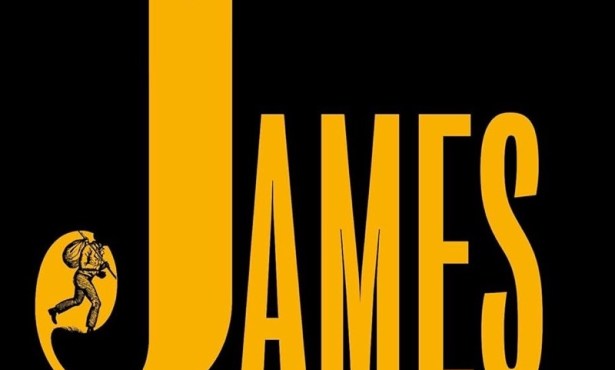Atul Gawande to Speak at Victoria Hall
Colin Marshall Chats with the Bestselling Medical Author
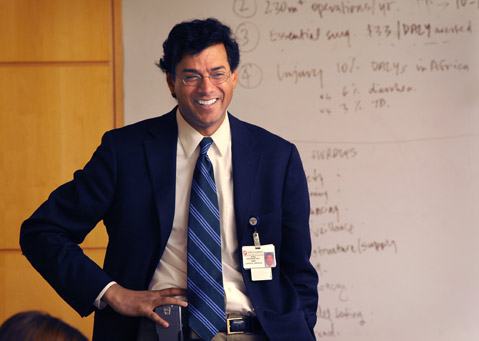
THE DOCTOR IS IN: For Dr. Atul Gawande, the concept of improvement has always loomed large. A general and endocrine surgeon at Boston’s Brigham and Women’s Hospital and a professor at both Harvard’s Medical School and its School of Public Health, Gawande has long been fascinated with the question of how we can improve medical practice. His writings on the topic have made him a medical public intellectual of the highest profile. After penning a series of columns on his surgical residency for Slate in the mid 1990s, his 2002 book, Complications: A Surgeon’s Notes on an Imperfect Science, established him as a specialist in medical improvement. Better: A Surgeon’s Notes on Performance, published in 2007, elaborated on the theme.
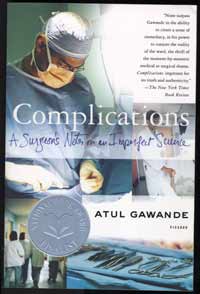
Gawande’s latest release, The Checklist Manifesto: How to Get Things Right, proposes a seemingly simple solution to the problems and accidents that still plague medical performance. The title is no metaphor: The doctor actually prescribes the low-tech checklist as a potential cure for procedural ills. In an email Q&A with The Indy in anticipation of his stop at S.B.’s Victoria Hall Theater on Friday, Gawande explained how he arrived at the conclusion that the simple checklist was one of medicine’s most powerful tools.
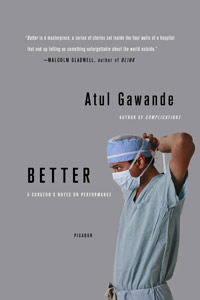
“I’ve been long obsessed with how we cope with risk and complexity as human beings,” Gawande wrote. “It’s a basic part of the surgical job description. But when I was assigned a project to find a way to reduce avoidable deaths in surgery, I started looking beyond the confines of medicine for ideas. The fascinating thing was to realize that professionals in almost all fields are struggling with the increasing complexity of their work—and that some of the most successful had turned to checklists. Checklists seem hardly worthy of a book. But there seemed to me something fundamental at stake here. Ignorance used to be our primary problem as human beings. Now ineptitude is—massive amounts of knowledge exist, but we’re finding it excruciatingly difficult to use even life-saving knowledge consistently or reliably.”
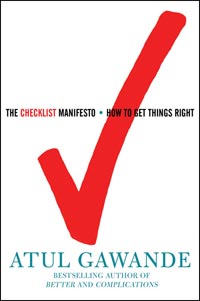
As a surgeon, Gawande looked for ways the checklist could benefit the triage, the examination room, and the operating theater. His findings have made The Checklist Manifesto one of the most popular medical texts out there. “There are a number of great medical writers I look up to,” Gawande wrote. “Oliver Sacks and William Carlos Williams, to name just two. What they have done, and what I am trying to do in all my work, is grapple with the uncertainty and misery and complexity bound up in illness and our effort to bring science to it. If you can capture this, you will find everything in there—fear, hope, life, death, economics, politics, morality—virtually the entirety of human struggle.”
Though he set out to examine the ways in which checklists improved medical practice specifically, Gawande found they held just as much promise for other fields. “This was not a book I expected to write,” he admitted. “I’d always kept to strictly medical storytelling. But my research on how to improve surgery forced me to search out people in aviation and skyscraper construction and other lines of work for ideas.” As he talked to a variety of non-medical professionals, he discovered a fascinating exchange of ideas. “They often saw their struggles—over, for example, how pilots should handle themselves in airplane accidents or how a structural engineer should deal with a potentially dangerous construction risk—differently from the way we do in medicine,” Gawande explained. “I began trying their way of thinking in medicine, and the changes were dramatic. Sure enough, that was when the book began taking form.”
4•1•1
UCSB Arts & Lectures brings Atul Gawande to Victoria Hall Theater (33 W. Victoria St.) on Friday, January 15, at 7:30 p.m. Call 893-3535 or visit artsandlectures.ucsb.edu for details.



